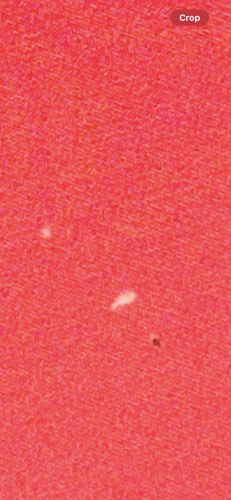Dust Mite
Scientific Name: Dermatophagoides spp.
Order & Family: Acariformes, Pyroglyphidae
Size: 0.2-0.3 mm (microscopic)

Natural Habitat
Human dwellings, primarily in bedding, upholstered furniture, and carpets. They thrive in warm, humid environments.
Diet & Feeding
Primarily feed on dead skin cells shed by humans and pets. They also consume other organic detritus.
Behavior Patterns
Invisible to the naked eye. They are most active at night when humans are in bed, feeding on sloughed skin. Their life cycle is relatively short (2-4 months), but they reproduce rapidly.
Risks & Benefits
Potential risks: A major allergen for many people, triggering asthma, eczema, and allergic rhinitis symptoms. They do not bite or transmit diseases. Benefits: Play a role in breaking down organic matter in indoor environments, though their presence is generally undesirable for human health.
Identified on: 9/5/2025